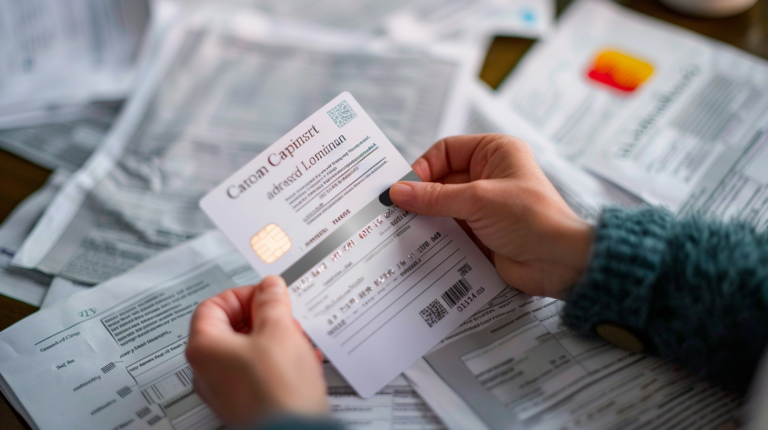Table of Contents
Rebuilding your credit score after a bankruptcy can seem like a daunting task. It’s a difficult time, but it’s crucial to remember that there’s a path forward. You’re not alone, and with the right guidance and perseverance, you can navigate your way to financial recovery. This article will provide a roadmap to help you understand and improve your credit score after such a significant event.
Understanding Your Credit Score After Bankruptcy
Declaring bankruptcy is a drastic measure that severely impacts your credit score. It’s a signal to lenders that you’ve struggled with your debt obligations in the past. Your credit score can drop by 200 points or even more, pushing it into the poor or fair range. To put this into perspective, if you had a good credit score of around 700 before bankruptcy, you might see it plunge to around 500 or lower.
However, a bankruptcy doesn’t mean your credit score is ruined forever. Your credit score starts to recover as soon as your debts are discharged. The key is understanding the timeline for credit score improvement post-bankruptcy. According to Forbes, it can take anywhere from two months to two years to see a significant improvement, depending on your situation and the steps you take to rebuild your credit.
A case study from Debt.org further illustrates this point. Their research shows that individuals who proactively managed their credit after bankruptcy saw their scores return to the good-risk range of over 700 within just four years. This goes to show that while bankruptcy does have a severe initial impact, it’s certainly not a life sentence of bad credit.
Steps to Rebuilding Your Credit Score: The First Year
Maintaining good financial habits is the cornerstone of rebuilding your credit score. It’s essential to create a budget, track your expenses, and live within your means. Avoiding new debt and making all your payments on time will show lenders that you’re taking your financial obligations seriously.
A secured credit card can be an excellent tool for rebuilding credit. Unlike regular credit cards, secured cards require a cash deposit, which serves as your credit limit. They’re much easier to get after bankruptcy because the deposit reduces risk for the lender. By using a secured card responsibly and making all your payments on time, you can start to rebuild your credit history.
Keeping your credit utilization low is another crucial step in rebuilding your credit score. Credit utilization refers to the percentage of your available credit that you’re using. A lower credit utilization rate shows lenders that you’re not overly reliant on credit, which can help to improve your credit score.
An expert from FindLaw adds that most people will see some improvement in their credit score within a year of bankruptcy if they follow these steps. This reinforces the importance of taking proactive measures to manage your credit after bankruptcy.
Steps to Rebuilding Your Credit Score: The Next Few Years
After laying the foundation in the first year post-bankruptcy, it’s time to continue building your credit over the next few years. This phase involves strategically using credit to demonstrate financial responsibility.
One strategy is to consider installment loans or credit-builder loans. These loan types allow you to borrow a small amount, which is held by the lender in a locked savings account. You make regular payments to the loan, and when it’s paid off, you get the money. The main purpose of these loans isn’t to provide you with funds, but to show credit bureaus that you can make regular payments on time.
Avoiding new debt is another critical aspect of rebuilding your credit score over the long term. While it might seem counterintuitive, taking on new debt can actually hurt your credit score if it leads to high credit utilization ratios or missed payments.
A case study from Debt.org highlighted the effectiveness of these long-term credit rebuilding strategies. Individuals who managed their credit responsibly after bankruptcy, including avoiding new debt and making timely payments, saw their credit scores recover significantly.
Getting a Mortgage After Bankruptcy
While a bankruptcy stays on your credit report for up to 10 years, it doesn’t mean you have to wait that long to qualify for a mortgage. Many lenders are willing to consider applicants who have shown a consistent pattern of responsible credit use after bankruptcy.
Improving your chances of mortgage approval involves several strategies. First, save for a large down payment. This reduces the lender’s risk and shows that you’ve developed good saving habits. Second, maintain steady employment. Lenders like to see steady income, and job stability can make you a more appealing candidate. Finally, pay all your bills on time, every time. This includes not just your credit accounts but also utilities, rent, and other regular payments.
An expert from Debt.org affirms that it’s possible to qualify for a mortgage within a few years of bankruptcy if you’ve taken the right steps to rebuild your credit. This serves as a reminder that bankruptcy is not the end, but rather a hurdle that can be overcome with discipline, patience, and strategic financial management.
Conclusion
Rebuilding your credit score after bankruptcy is a journey, not a sprint. It requires a commitment to responsible financial habits, strategic use of credit, and a dedication to staying debt-free. While bankruptcy can deal a significant blow to your credit score, it’s not a permanent mark. With the right approach, you can rebuild your credit score, qualify for a mortgage, and move towards a future of financial stability and prosperity. Remember, bankruptcy is a setback, but it doesn’t define your financial future. You have the power to turn things around and regain control of your financial health.



